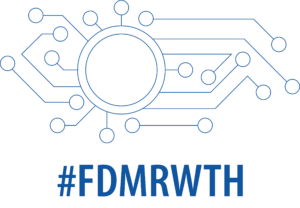
Source: Freepik
In order to initiate a cultural change in science evaluation and improve equal opportunities in this context, the Deutsche Forschungsgemeinschaft (DFG, German Research Foundation) has put together a corresponding package of measures. As a result, the DFG is changing the application forms and introducing a uniform and mandatory template for CVs. In the new RDM blog post, we take a closer look at the innovations and the reasons behind them.
The new features of the template
There is now the option to list in the CV, in addition to ten publications in the more common publication formats, up to ten additional research outputs and research data made public in a variety of publication formats. These include, for example, articles on preprint servers, data sets or software packages.
In addition, a field for the ORCID ID has been added under the personal data details. Applicants who have an ORCID ID are requested to provide it. Those who do not have an ORCID ID are invited but not required to create one. (*)
Background
In May 2022, the DFG published a position paper on academic publishing in which it defines challenges and fields of action. In this context, the DFG sees not only the scientific community, but also itself as a funding organisation, as having a responsibility to initiate a change towards a fairer and more content-focused scientific evaluation. In order to create suitable and standardised framework conditions for successful science, the DFG reviews its procedures at regular intervals and adapts them as necessary (most recently, we reported in April on the new DFG templates for funding proposals).
To take account of the position paper published in May, the DFG has configured a comprehensive package of measures. This includes a cross-programme CV template for all funding programmes, which will become mandatory from March 1, 2023. For proposals in the programmes of the Collaborative Research Centres and Research Training Groups, the template will still be adapted shortly.
The DFG’s goal is to shift the focus of the review and evaluation of a proposal away from quantitative indicators and instead place the content-related aspects in the foreground. Through this new orientation, the DFG hopes to achieve greater equality of opportunity and a higher quality basis for evaluation.
The advantages of the new template
The new CV allows narrative and tabular information to be provided, facilitating a holistic view of the applicant’s academic career in the review and evaluation process.
In addition to the information required to verify eligibility, applicants can also provide details of special life circumstances or additional services to science (e.g. committee work or development of a scientific infrastructure). In this way, the applicant’s scientific achievements can be considered and evaluated in the context of the respective individual life and career stage.
Further changes in detail
When assessing performance on the basis of content-related qualitative criteria, the entire range of scientific publication forms must not be disregarded.
Further changes can be found in the bibliography, which lists project-specific publications. For the project, up to ten relevant own publications and preliminary work can now be accentuated typographically, e.g. by boldface. Information on quantitative results such as impact factors and h-indices, on the other hand, should not play a role in the review process and are therefore not required in the CV. (**)
Learn more
You can find the CV template and further information on the topic on the DFG website.
If you have any questions about RDM in general, feel free to write the IT-ServiceDesk. The RDM team looks forward to hearing from you.
_______
Responsible for the content of this article is Sophia Nosthoff.
(*) The paragraph was updated on 16.09.2022.
(**) The paragraph was updated on 16.09.2022.





Leave a Reply
You must be logged in to post a comment.